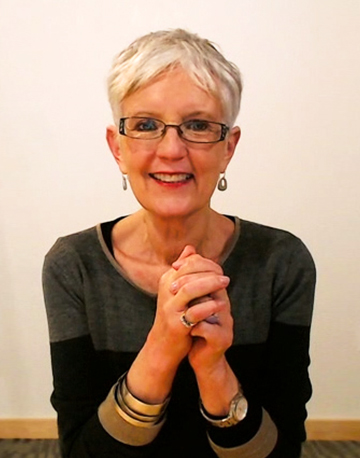How to Identify and Treat Dissociation (Even When It’s Subtle)
 |
with Peter Levine, PhD;
|
 |
with Peter Levine, PhD; Ruth Lanius, MD, PhD; Stephen Porges, PhD; Bessel van der Kolk, MD; Thema Bryant-Davis, PhD; Kathy Steele, MN, CS; Janina Fisher, PhD; Bethany Brand, PhD; Pat Ogden, PhD; Ruth Buczynski, PhD
Sign up for a Gold Membership

This is a learning community for practitioners. We can’t wait to hear what you’re going to use with your clients
But please do NOT:
- seek advice for personal problems
- ask for referrals
- post links or advertise a product
- post about technical problems
The information about the potential triggering effect of an overly empathetic stance and being able to shift into one that is more matter of fact.
As always, an amazing session. Thanks. I’m at the beginning of my travels as a psychotherapy. This is really helping.
Really helpful and inspirational. Thank you
It was amazing to me to hear how the “empathy voice” can trigger the sexually abused if their abuser used that to groom them… !
Thank you. Will be putting learning into practice !
Nicola UK
thanks so much for this session.
I was very interested in the differentiation between DID and ‘simple’ disassociation.
Structural Dissociation—thank you for this explanation, so helpful to my work.
Thanks for the strategies. Very helpful and applicable.
Thank you! Great session!
A big Thank You ?
Thank you for this brilliant webinar!
Lean into the fear don’t run from it! Helpful idea.
I work with inner city youth and find that they don’t respond well to a high level of empathy. I’m thinking because they think it is not authentic.
Thank you! Very informative.
Thank you for a brilliant session, the things I will take away today are:
The statement “Don’t let trauma define who you are, you are so much more than that”.
and the need for empathic and matter of fact approaches and being able to switch from one to the other as necessary in order to keep the the client safe – trust you instincts as a therapist.
I very much concur with your points! For me, especially clients response to empathy was a great discussion.
Thanks for this instructive session. I am a life coach, not a therapist, and I often work with clients who have experienced childhood trauma. I also live with a dissociative disorder and use every opportunity to spread the messages you promote about the implications of early life trauma for adult health and well-being. Thank you for all that you offer in terms of applying new science to the provision of effective care and healing. The winter 2020 edition of The Permanente Journal includes an article I wrote about what it’s like to deal with the medical world when you have DID. It covers many of the points you made today, but from the patient’s view. If anyone is interested, it can be found on the Permanente Journal website, with the title “A Patient’s View of the Challenges and Blessings of Her Dissociative Disorder.” Thank you again for your focus on improving the treatment of trauma.
Bonnie, thank you so much for sharing your article here. It was powerful for me to read and understand more about DID, and also to feel supported as someone who is slowly remembering parts of my life that I had blocked out. Blessings to you. -Lily
And many blessings to you, Lily. I am so pleased that my article was helpful to you. That’s why I wrote it. I know how alone it can feel as you are recovering your past. Hang in there. You already survived the worst…you can handle the healing, too.
Bonnie, thank you for sharing your article. Very powerful.
Glad it was useful, Jo.
I was wondering about first normalizing a client dissociative states or parts, as the clients way of protecting themselves and getting permission from the client to get to know those parts and the role they play, or how they serve the client and eventually talking to those parts and. Maybe, the clients eventually being able to talk to those parts too,, with the goal of integration. Great ideas presented. Thanks to all the presenters.
“We change the course of civilization” – thank you for helping us to do so with excellent ideas, tools and information! A very nice presentation, indeed.
– Moving, walking (away), grounding. – Thoughts as thoughts, not as truth. – How you use your voice.
This session helps me to reflect on my own work with clients. It was very refreshing to experience it in such an organized and clear way!
I’m looking forward to the next week.
Thank you very much!
This program helps me to deepen my knowledge and skills around two (2) actively incompatible motivational systems (Attachment, seeking love and attention of significant others; and Defensive avoidance, fight, freeze) and how, when unresolved, they may naturally lead to fragmented experiencing of reality and fragmentation of personality.
Thank you,
Margaret Sroga, Ph.D.
Ruth,
I want to say thank you for providing this training on dissociation. I appreciate any education that I receive, but I am drawn to learn about trauma and how it affects the brain and individual. I am a grad student earning a MA in Clinical Mental Health and then I plan on earning an EdD in Community Care and Crisis with an emphasis in Traumatology. I have been a volunteer firefighter and EMT for 25 years. I also happen to be a person who has been diagnosed with dissociative identity disorder, borderline personality disorder, bipolar disorder, and complex PTSD. I was in therapy for 34 rough years (I am 48 years old) and I finally found that a combination of REBT, mindfulness, and emotional intelligence has stabilized me over the past 3 years. I earned a degree in psychology in 2019 and started grad school in 2020.
I have always had a strong desire to learn and I appreciate the time that you and your staff contributed to creating this lecture. I will apply what I have learned today in my studies and with my future clients. Again, thank you.
Melanie Hilliard
Melanie your sharing and healing journey above is so empowering ….what a resilient, self-motivated individual you are to embark on the field of psychology that has so much been part of your own lived life. All the best and lovely to have been able to be part of this program with so many amazing people.
This information is so helpful and I’m learning best when examples are given to describe clients behavior and therapeutic response. Like Janinas example of clients contradictory behavior of being agoraphobic & running at 1AM. Also helpful to not ask client to do something therapist doesn’t do with client and validating how hard trauma work is and slowing down to take a breath together.
The presentation was interesting with a few good points. I work with a lot of women who have been abused and traumatized, so I am aware of most of the phenomena that were discussed in the lecture. I am familiar with many of the techniques related to dissociation because I am trained in Ericksonian hypnotherapy and have been doing it for 30 years. Thank you.
I am still saying, “wow!”
You did it again NICABM!!! You have given me amazing info and tools to reach out and hopefully do it right!!! I love your Don’t segment from Session 1 and your Mistakes from Session 2!!! You will get through this time with your message!!!! Huge thanks to the greats for their refreshing, honest insight and sharing!! I always said coming from a person who has experienced it will make the difference!! Now I get it why your courses are so effective! You guys did not just hear about it or learn it from a book! Keep up the amazing work!!! God Bless you all!
This webinar has been great in helping me to begin to identify help that my father needs. I would purchase the Gold Package and support your work if I could. I’m so grateful for what you have shared, thanks!!!
Can you please give us List of References also, Thanks
As a child psychiatrist and EMDR therapist, I found this as a good review of dissociation and improved my awareness. thank you.
I am hoping to use this in my work with clients with dual diagnosis, substance abuse and trauma. My take away is that discotiation is on a continum.
Pretty much all mental health is on a continuum!
Thank you for sharing this training on this complex subject. I intend to use the training and ideas for strategies with one of the saddest cases of my career, a teenage boy whose father no longer wants to have contact with him. His starting point is that he does not feel complete or himself.
I found it really helpful when therapists shared how they would talk with clients and specific examples of what they would say. e.g. Janina Fisher’s example of rather than saying ‘you’re spacing out’ which could sound critical/judgemental, saying lightly and in a way that is welcoming ‘oh the spacey part is here, how interesting’.
Also the warning and explanation about how empathic responses may be triggering for some clients who need you to be more matter of fact.
Thank you all for an interesting and useful session.
I was fascinated by the tools to establish a dissociative state. I had gone through a very severe case of post-partum depression with psychosis with some childhood trauma elements that came up and it is so interesting to hear some of the symptoms of what I was feeling when I was first being treated and be able to identify them as dissociative. Thank you for sharing this information!
Thank you for all the keys and recomendations.
Excellent summary of how to approach dissociation and DID. Helpful to be reminded of the subtleties of creating a relationship with someone who has been traumatised by therapists who are clearly very knowledgeable and experienced
This will help me pick up the symptoms that show someone is fractured and help me work with them.
The discussion regarding client response to empathy was very helpful.
A compassionate tone can cause a negative reaction to sexual violence survivors.
Hi, that was very informative. Thank you. Dr Brand spoke so quickly I didn’t have enough time to write down the 5 types of dissociation needed to arrive at a diagnosis for DID. What are they please?
depersonalization
derealization
identity alteration
identity confussion
disocial amnesia
I had the same problem – I heard:
1. depersonalisation
4. identity confusion
5 dissociative amnesia
but missed the second and third.
Derealization and identity alteration are the 2nd and 3rd criteria
Thank you, great content and presentation! My biggest takeaway is new perspective of how my empathy could trigger client because abuser showed fake kindness or tenderness prior to abuse, and learning strategy to adjust to more matter-of-fact tone in certain situations.
I agree. That was very in insightful.
The three red flags are invaluable, as is the advice to take a breath, slow down. Recognising DID also very thought provoking. Thank you!
Beautifully integrated Presentation with Clarity ,Coherence and Conscious awareness.
Great stuff. I’m getting a lot out of it. But… I am on the front line of ALL these behaviors EVERY day with my child. Clinicians are there once a week. What are the best programs/advice you have for PARENTS to get trained to work with all of these key symptoms?
And may I add children who are caring for a parent :>
I have gotten Neurotherapy for my son this past year and it has been tremendous! He is such a different child now. He was having psychogenic non-epileptic seizures and dissociating. He hasn’t had an event since December.
And may I add a sister who is traumatised herself now by having a sibling go into trauma therapy. How does one stop this cycle of suffering perpetuating? I’m hoping this will be covered in another session. Help is really needed for those of us who are drawn into the vortex of a loved one’s trauma response with no preparation, no support, no education, usually just devastation on all fronts. . We are not professionals, we are parents, children, brothers and sisters, but our lives too are torn apart.
I have been working with clients with borderline personality traits and have been already using some of these strategies like grounding and addressing the dissociative part gently – it does help to have them validated here and to know that there are other techniques one can use. Thank you!
I am working with a self-diagnosed DID client, my first client of this diagnosis, so having confirmation during this session of basics like stay slow, use grounding techniques, etc. were reassuring.
Fantastic
I will use this learning with coaching clients and in work that is helping to build Communities such as the Choose Love Movement. Thank you for making some sessions free!
Immediately I am going to be much more aware of attachment injuries and how that can present in the client who comes for therapy and seems somewhat detached. Attachment itself can be threatening.
I will try the Somatisation techniques, moving between two postures that represent different parts and helping them integrate. Thanks for such a well put together series.
Very helpful. Thank you.
Extremely helpful!
Would also like you to review freeze vs dissociation.
Thank you so much,
Kim